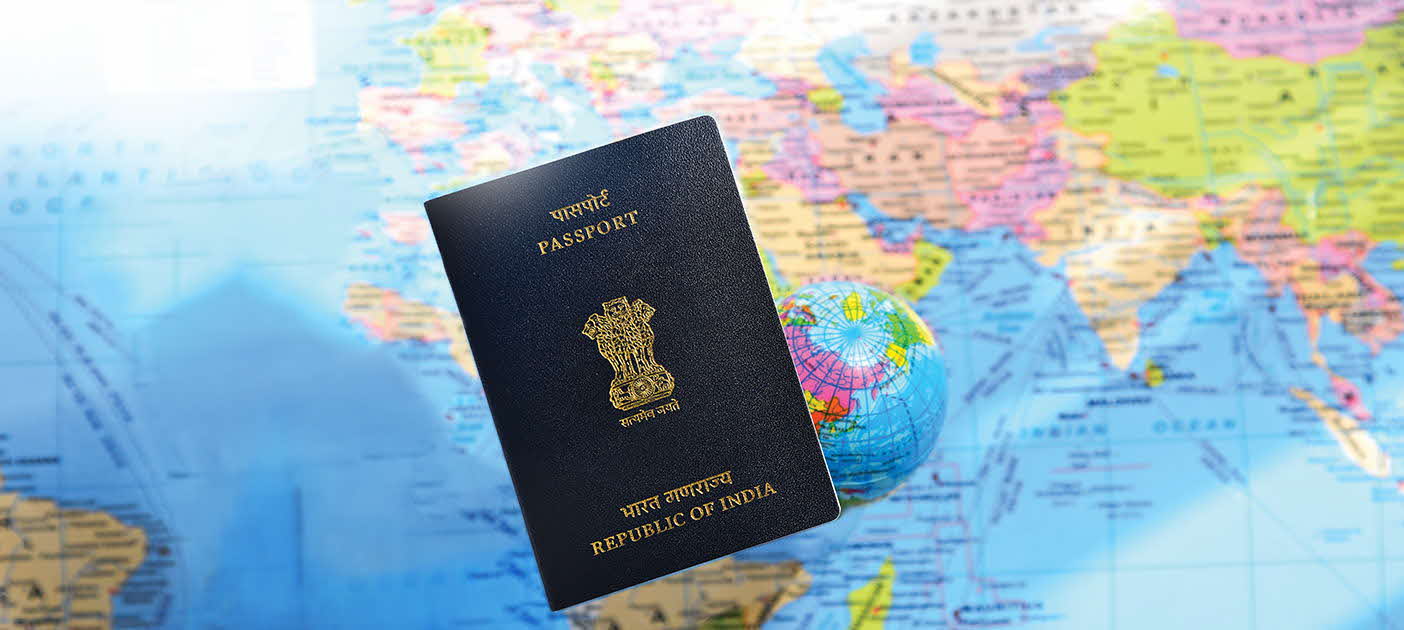- Banking
- Wealth
- Privileges
- NRI Banking
- Treasures Private Client

Who is an NRI, an OCI and a PIO?
Reading Time: 3 Minutes
Key Takeaways: This article is your one-stop-shop for answers to all questions about different Indian citizenship and residency status categories. If you want to understand the differences between NRIs, OCIs and PIOs, read on.
Introduction
For Indians residing overseas, understanding the differences between Non-Resident Indians (NRIs), Persons of Indian Origin (PIOs), and Overseas Citizens of India (OCIs) is essential. These distinctions are crucial, especially when deciding whether to open an NRI account, which offers significant advantages in managing finances abroad. This guide will help you navigate the unique aspects of each status and their financial implications.
Learn about the differences between NRIs, PIOs and OCIs
The relationship between India and its dynamic diaspora, including Non-Resident Indians (NRIs), Persons of Indian Origin (PIOs), and Overseas Citizens of India (OCIs), is vital both to the individuals and the nation. Whether you're exploring the best bank account for NRI, or pondering the difference between NRI, PIO and OCI, this comprehensive guide will illuminate the path.
|
Category |
NRI |
PIO |
OCI |
|
Residency |
|
Foreign citizens with Indian ancestry; merged with OCI. |
Foreign nationals of Indian origin eligible for OCI. |
|
Restriction |
Need to meet specific duration criteria for residency. |
PIO cardholders must transition to OCI by set deadlines. |
No political rights and restrictions on certain properties.
|
|
Key Benefits |
Can open an NRI account for managing finances. |
Encouraged to convert to OCI for sustained benefits. |
Lifelong visa to India with most privileges like NRIs. |
|
Purpose |
Primary focus is on retaining financial ties with India. |
Previously recognized for their ancestral ties to India. |
Strengthens cultural and familial connections to India. |
Who are NRIs?
The term NRI which stands for Non Resident Indian is loosely used to refer to all Indians residing outside the country. However, an NRI is an Indian citizen holding an Indian passport and ordinarily residing outside the country. For taxation, an individual's residential status has to be determined under the Income Tax Act. While Section 6 of the I-T Act has no definition of who qualifies as an NRI, it does outline the criteria for an individual to qualify as a resident of India. Thus, all those who are Indian citizens but do not match the said criteria are categorised as Non-Residents Indians.
As per the I-T Act, one qualifies as a resident of India if he or she:
- has been in India for 182 days or more during the previous year (i.e. financial year gone by), or
- has been in India for 60 days or more in the previous financial year, in addition to having lived there for 365 days or more in the 4 years immediately preceding the said financial year.
Anyone who fails to fulfil these criteria is classified as an NRI. Those classified as NRIs often explore options like opening an NRI account to invest money in India, send funds to family, or securely manage income from sources in India (such as pension, rent, etc.). Utilizing a bank account for NRI can facilitate these financial activities and keep them connected to their homeland.
Who are PIOs?
A Person of Indian Origin (PIO) is defined as a foreign citizen who holds a foreign passport and has either previously possessed an Indian passport or has ancestors who were Indian nationals. According to the Reserve Bank of India (RBI), understanding what PIO is involves recognizing that a PIO resides outside India and is a citizen of any country, excluding Bangladesh, Pakistan, or any other country specified by the Central Government, while meeting certain specified criteria.
- Was a citizen of India by virtue of the Constitution of India or the Citizenship Act, 1955; or
- Belonged to a territory that became part of India after the 15th day of August 1947; or
- Is a child or a grandchild or a great-grandchild of a citizen of India or of a person referred to in clause (a) or (b); or
- Is a spouse of foreign origin of a citizen of India or spouse of foreign origin of a person referred to in clause (a) or (b) or (c)
In 2005, the Indian government amended the Citizenship Act, allowing PIOs to obtain OCI status. By 2015, PIO and OCI schemes were merged, and PIO cardholders were recognized as OCI Cardholders. Although the original deadline for converting PIO cards was December 31, 2021, it has been extended. As of February 7, 2025, the latest deadline is December 31, 2025, giving cardholders additional time to transition to the OCI system. For further verification and details, refer to announcements and policies from the Ministry of Home Affairs, Government of India.
Who are OCIs?
The concept of Overseas Citizen of India (OCI) was introduced to address the growing demand among the Indian diaspora for stronger connections to their homeland. While the Indian Constitution allows only for single citizenship, the OCI card offers a way to maintain ties with India without granting 'dual citizenship'.
The OCI card, established under Section 7(A) of the Citizenship Act, 1955, provides significant benefits, although it does not confer political rights or equality in public employment under Article 16 of the Constitution. Essentially, it allows individuals of Indian origin who were eligible for Indian citizenship as of January 26, 1950, or who were citizens of India thereafter, to apply for an OCI card. This includes residents of territories that joined India after August 15, 1947. Minor children of eligible individuals can also apply, but those who were citizens of Pakistan or Bangladesh are not eligible.
What are the benefits of being an OCI cardholder?
Having an OCI card grants a multi-purpose, multi-entry, lifelong visa to India. This allows OCIs to visit India at any time, for any duration, and for any purpose. Economically and educationally, OCIs enjoy similar rights to Non-Resident Indians (NRIs), making it easier to explore opportunities like opening a bank account for NRI or learning about the difference between NRI, PIO and OCI. However, they are not permitted to own agricultural or plantation properties.
In conclusion, understanding the distinctions between NRIs, PIOs, and OCIs is essential for anyone in the Indian diaspora seeking to maintain a connection with India. Each category offers unique benefits and legal standings, with the NRI status facilitating financial engagements such as opening an NRI account, and the OCI card providing lasting ties through comprehensive travel and residency privileges. As policies evolve, staying informed and leveraging these opportunities can help individuals of Indian origin maintain strong cultural, financial, and familial bonds with their homeland.
For those exploring their options, grasping the difference between NRI, PIO, and OCI is an invaluable step toward making informed decisions that align with personal and professional goals. Whether through an NRE account or leveraging OCI status, these paths offer diverse ways to stay connected to India's vibrant heritage.
Final Note: For all those residing outside India but looking for ways to stay connected to their roots, residency status categories listed earlier are a great option. All existing PIO cardholders must also switch to an OCI card by 31st December 2021, after which these cards will cease to be accepted.
With DBS Treasures, you can open an NRI account remotely from the comfort of your home. Apply Now!
References: 1











